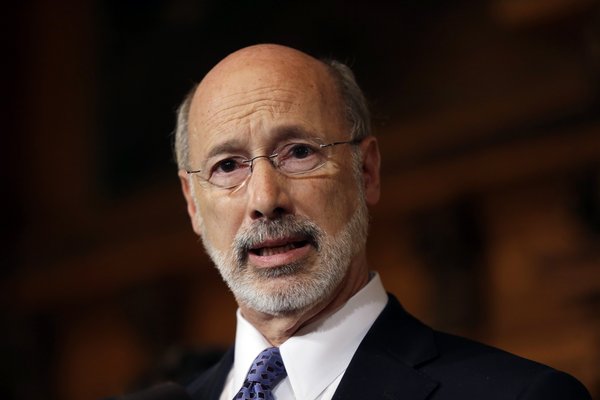Monday evening the State House Health Committee quietly voted – without a public hearing – to send Senate Bill 3 to the full House. The legislation would restrict the maximum window for legal abortions to 20 weeks of pregnancy.
Despite limited medical community support or legitimacy, the bill could soon be headed to the governor's desk, though Gov. Tom Wolf has vowed to veto the bill, calling it an "attack on women."
- RELATED STORIES
- Drexel doctor 'not familiar with any medical evidence' behind White House push for new abortion limits
- Trevor Noah drags pro-life Pennsylvania rep who urged mistress to get an abortion
- Report: Pro-life Pennsylvania rep. urged abortion in extramarital affair
In Pennsylvania, abortions are currently permitted up to 24 weeks of pregnancy. Dr. Lamar Ekbladh, professor of obstetrics & gynecology at the Drexel University College of Medicine, told PhillyVoice that most abortions he sees occur earlier than that, but the extended timeframe gives health professionals the chance to accurately diagnose the fetus in case of ailments.
According to Penn Live, the proposed bill also would outlaw what Michele Brooks, a Republican state senate member from Pennsylvania's 50th District, referred to as “dismemberment abortion,” though that is not a medically recognized term.
The professional term for the procedure to which Brooks erroneously referenced is dilation and evacuation, or D&E, which is used in second-trimester abortions. It accounts for only one percent of abortions a year.
If passed, the 20-week limit would apply in all circumstances, regardless of abnormalities or health threats to the woman or the fetus, or if the pregnancy is a result of rape or incest.
Democrats like Wolf, as well as some moderate Republicans, are outraged at the bill, especially since it passed through the Senate without insight from the medical community.
“It’s a decision between the woman and her doctor,” said Philadelphia Democratic Representative Richard Dawkins to WHYY. “I don’t believe that any of us in an elected capacity have more knowledge than those who have a degree in this field.”
The opposition isn’t limited to politicians, either; the Pennsylvania Medical Society also opposes the bill.
“We are highly concerned that the bill sets a dangerous precedent by legislating specific treatment protocols,” wrote Scott E, Shapiro, former president of the PA Medical Society, in a letter last year.
If passed, the state's policy would become one of the strictest on abortion in the entire country.

